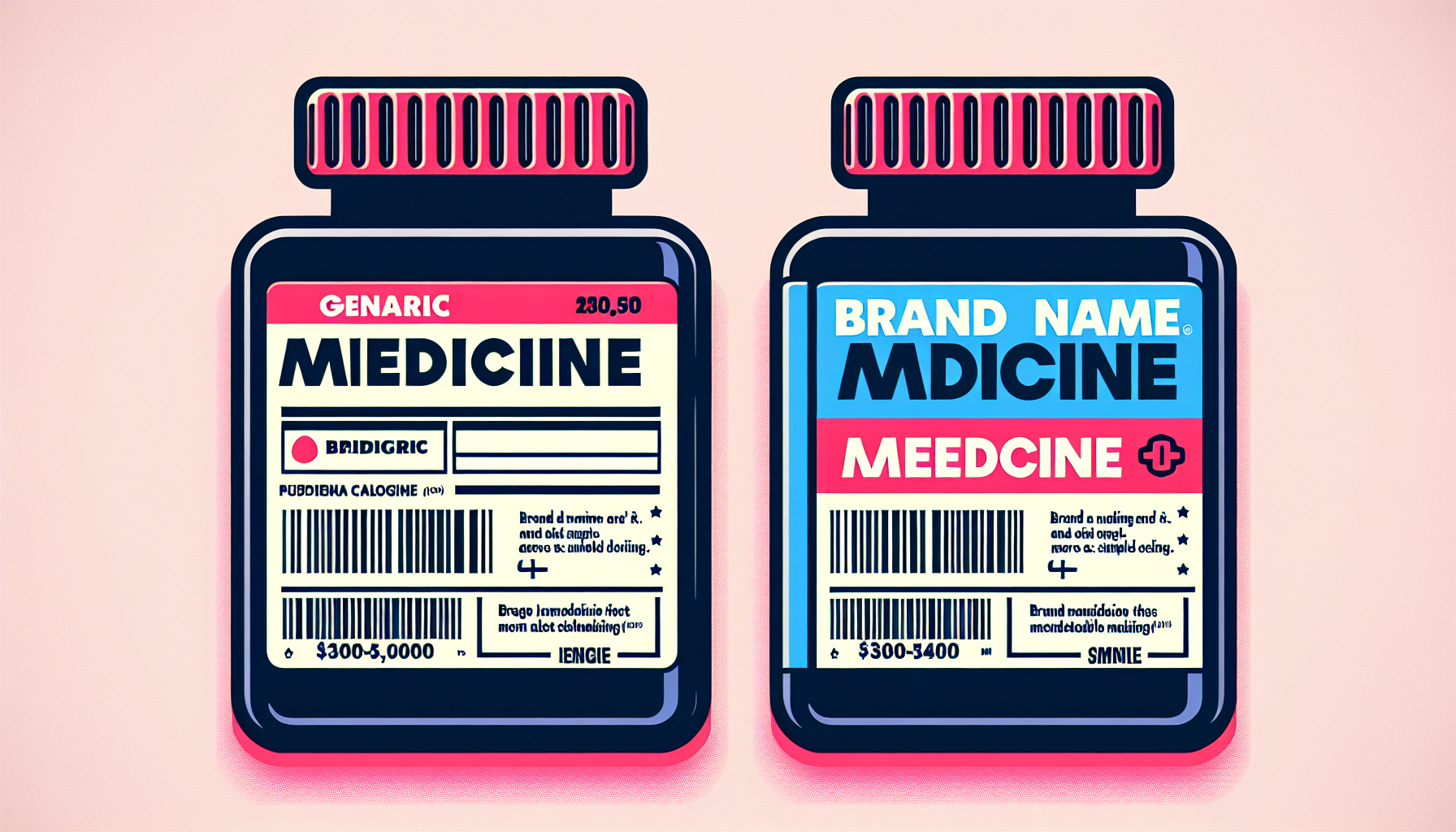Medications are an integral part of modern healthcare, offering relief and treatment for a multitude of conditions. While brand name medications often come to mind when we think of prescription drugs, generic medications play a just as crucial role in the healthcare system. This article aims to demystify the differences, similarities, and misconceptions surrounding generic and brand name medications, ensuring you’re well-informed for your next visit to the pharmacy.
What Are Generic Medications?
Generic medications are essentially the pharmaceutical equivalents to brand name drugs, containing the same active ingredients, dosage form, strength, route of administration, quality, and intended use. When a pharmaceutical company develops a new drug, it is patented, giving the company exclusive rights to sell the drug for a certain period, usually 20 years. Once the patent expires, other manufacturers can apply to the FDA to sell generic versions.
The main appeal of generic drugs is their cost-effectiveness. They are typically much less expensive than their brand name counterparts because generic drug manufacturers do not have the same development costs as the original company. This cost-saving is passed on to the consumer, making medications more accessible to a wider audience.
Efficacy and Safety of Generics
There is a common misconception that generic drugs are somehow inferior to brand name drugs in terms of quality, safety, and efficacy. However, the FDA requires that all medications, including generics, must undergo rigorous testing to ensure they meet these standards before they can be marketed.
Generic medications must prove bioequivalence, which means they work in the same way and provide the same clinical benefit as their brand name version. Studies have shown that the variability in absorption between generics and their brand name counterparts is typically less than 4%, which is considered negligible.
For more in-depth information on how medications are tested for efficacy and safety, consider reading about Medication Safety Practices for Seniors, which touches on the rigorous standards all medications must meet.
Choosing Between Generic and Brand Name
When it comes time to fill a prescription, you may be given the option to choose between a generic or brand name medication. The decision is often influenced by cost, with generics being the more budget-friendly option. However, there are certain situations where a brand name drug might be preferred, such as when a patient has an allergy to an inactive ingredient in the generic version or when a precise dosage is essential for treatment.
Discussing options with a healthcare provider is essential, as they can provide personalized advice based on your medical history and specific health needs. In some cases, the choice may also be influenced by the health condition being treated. For instance, when considering Cardiovascular Health, consistency in medication can be critical, and your doctor will advise on the best option for your scenario.
The Role of Insurance in Medication Choice
Insurance coverage is another factor that can affect whether a generic or brand name drug is chosen. Many insurance plans have a formulary, a list of preferred medications, which often includes generic drugs due to their lower cost. Some plans may not cover brand name drugs at all unless a generic version is not available or is not suitable for the patient.
For more information on navigating insurance and medication choices, the article Understanding the Interactions of Multiple Medication Use provides valuable insights.
External High-Quality Resources on Generic vs. Brand Name Medications
When researching this topic further, there are several niche resources that provide valuable information:
- The FDA’s Office of Generic Drugs offers comprehensive data on the approval process for generic medications and how they ensure the safety and efficacy of these drugs.
- The Generic Pharmaceutical Association provides resources about the benefits of generic drugs and how they support public health by making treatments more affordable.
- For a global perspective, the World Health Organization’s Prequalification of Medicines Programme ensures that medicines supplied by procurement agencies meet acceptable standards of quality, safety, and efficacy.
Generic Medications and Other Health Supplements
It’s important to recognize that generic medications can interact with other health supplements and over-the-counter drugs just as brand names can. Comprehending how your medications interact with supplements is crucial for maintaining overall health. The article Supplement Safety: Understanding the Risks and Benefits is a useful resource for this topic.
Conclusion
In summary, generic medications offer a safe, effective, and more affordable alternative to brand name drugs. Armed with the knowledge that generics undergo the same rigorous testing and meet the same standards as brand names, consumers can make informed choices about their healthcare. Remember that it’s always important to discuss any concerns or questions with a healthcare provider, who can guide you based on your individual health needs.
Overall, understanding generic versus brand name medications empowers you to make informed decisions for your health and your wallet. As the healthcare landscape continues to evolve, staying informed about these options is more important than ever.



